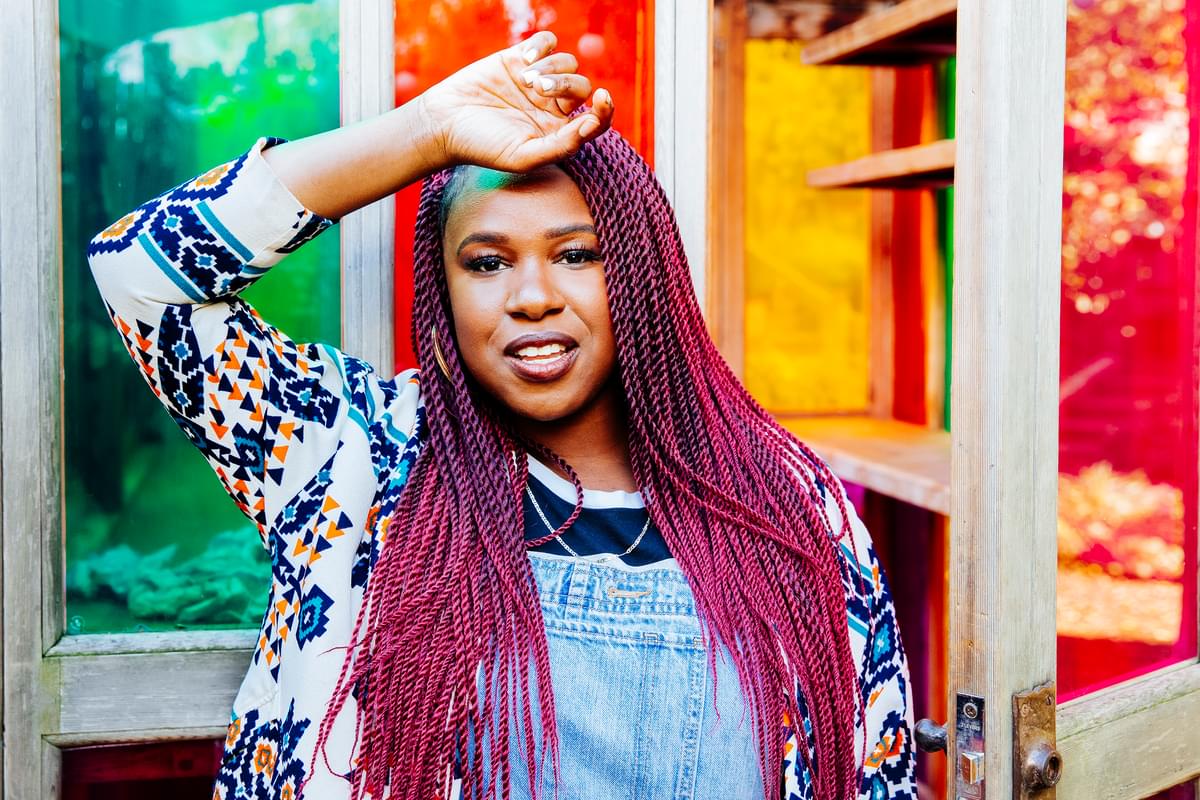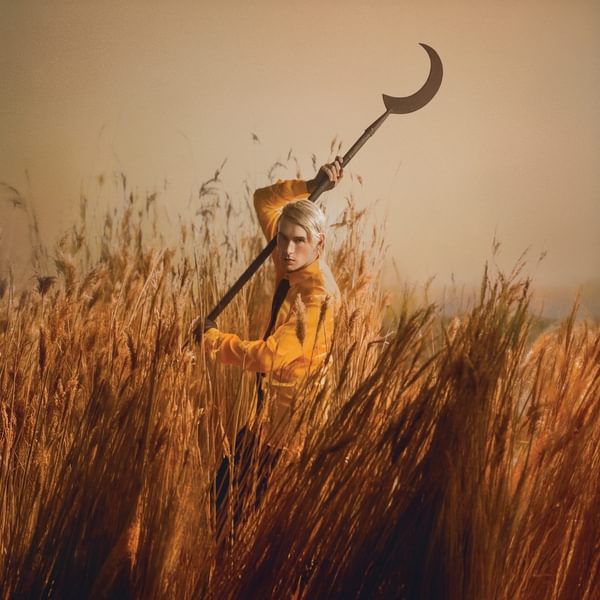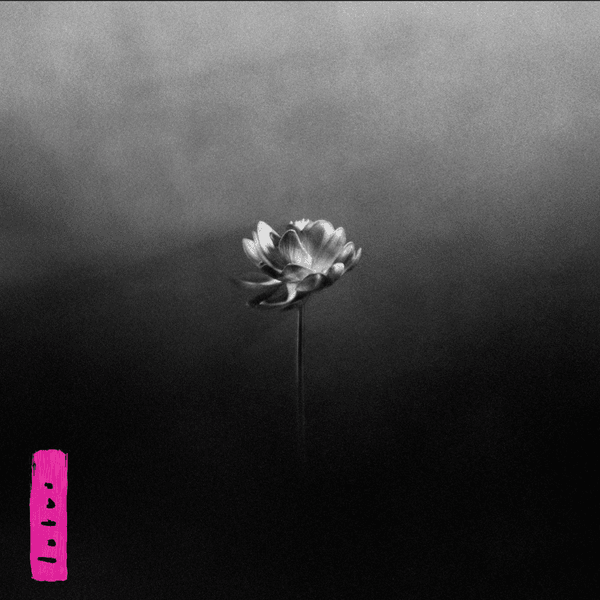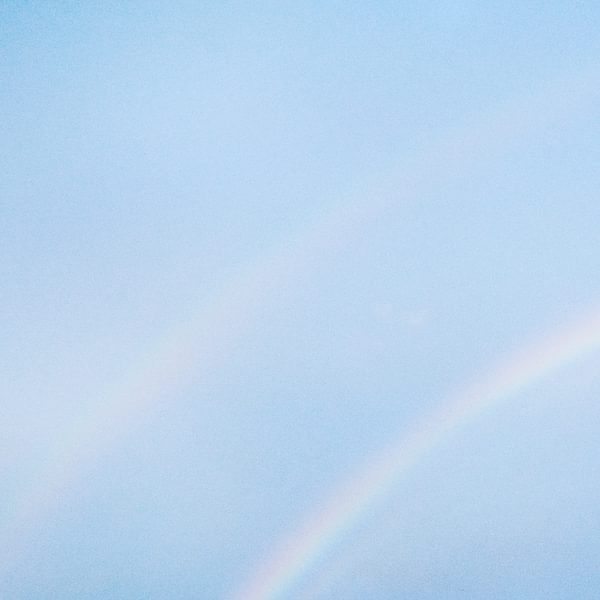
When Saturn Returns
Nao looks up to the alignment of the planets on new album Saturn to extract answers about her own life. She tells Sean Kerwick how an astronomical episode called ‘Saturn’s Return’ helped her to make sense of life’s wayward paths in an age of perfection.
“It’s not about to get really personal is it?” Nao asks me jokingly as her make-up artist is deliberating whether to stay or leave us to it. The trouble is, with an album like the newly released Saturn which examines so many intimate strands of life such as ageing, heartbreak and our society’s struggle with perfection, it’s hard to talk about it without getting somewhat personal.
In the back room of Nao’s publicity office, a travel holdall is open wide with its contents splattered all over the room; she's in the midst of a hectic promo schedule where she’s being pulled left, right and centre into interviews, phone calls and photoshoots. “You’ve caught me in the second wind,” she explains. Despite being in this whirlwind since 8am, Nao still greets me in the late afternoon with a huge smile and a friendly two-handed handshake.
In the earlier half of the decade, the Nottingham-born Nao was a session vocalist for the likes of Pulp and Kwabs after a spell at London's Guildhall School of Music & Drama but soon enough the spotlight found her. Looking back now, it’s hard to imagine Nao’s presence being restrained to the side of the stage or deep in the mix of another artist’s work. Her unique voice possesses a lilting quality which is instantly identifiable, sometimes it sounds as if it floats several semitones above what is humanly possible.
She possesses an equally compelling persona and her demeanour suggests anything but nervousness - there is a dichotomy of cool collectedness and wild bursts of energy throughout our conversation. The only flashes of doubt emerges in the words she occasionally lands on - “I must admit I’m very nervous to put the album out. I don’t even know if I’ll be a singer by this time next year. Maybe people will hate it and I’ll just die.” This coiled apprehension is understandable for an artist on the cusp of their second album release, especially one following a debut album so warmly received as For All We Know back in 2016.
For All We Know shimmied into the pop stratosphere with an R&B sweatbox suite of tunes bubbling with tight grooves, ‘wonky funk’ and lyrics charting tales of a 20-something going through the trials and tribulations of passion, heartbreak and change. It garnered critical acclaim, charted in the Top 20 and has led to starry cowrites and collaborations with the likes of Ariana Grande, Stormzy and Nile Rodgers. Frank Ocean even played standout single “Bad Blood” on his revered Blonded show on Beats 1, a special place reserved only for the most inspiring art flaring on his deeply-attuned radar. “Oh my god, I love that song!” Ocean declared in a seldom-interrupted tapestry of tunes.
So with all this in mind, is the difficult second album myth true? “I think it should be true, I think it is true”, Nao suggests. “But for me writing the second album was fairly straightforward as I was going through a lot and there was too much to write about.” Had Nao released her debut album in her early twenties, maybe the second album would have been the slog which is so frequently documented, but writing between the ages of 28 - 30 - a period Horoscopic Astrologists call ‘Saturn return' - proved to conjure up some fierce inspiration.
“A lot of my friends would be like ‘I’m in my Saturn return’ and I’d be like ‘what is that shit?’” She explains, “I began to understand the concept more as things were happening to me, things were really changing in my life and they’d say ‘that sounds like your Saturn Return’. I read up about it and thought it was such a beautiful concept.” The phenomenon is described in an interlude on the album amongst a swirl of strings in a dulcet tone which sounds as if it has been beamed straight from a ’70s astronomy documentary: “Saturn’s return is an astronomical episode that occurs when the planet Saturn returns to the position it occupies at the moment of your birth. It reaches this position after approximately 29 or 30 years. It’s about letting go of what doesn’t serve you - relationships, jobs and past regrets.”
"Having the theme set before writing the album really helped the writing process"
“Even if you don’t believe in astrology or if you’re not a spiritual person, it’s a great way of symbolising somebody going through their 20s, going through the ups and downs and trying to establish themselves,” Nao explains. “It relates to people who thought they would get to a certain point in their life and they haven’t reached it yet. It’s about saying to yourself ‘actually some things aren’t working for me’ and it’s time to become an adult and say ‘yes’ and say ‘no’, let things go and move onto new things. I wanted to embody that in an album as that’s what I was going through as a human.”
This theme allows interstellar imagery to spill into the lyrics and sound of Saturn, but not to the same wild extent as Arctic Monkey’s Tranquility Base Hotel + Casino - Nao’s gaze is fixed firmly on earth with a telescope zoomed in on the human condition. “I didn’t want to turn it into a sci-fi album. So I kind of skirted around it and used elements of it. I talk about gravity and orbits and things like that but I tried to use it in more of a musical way. Having the theme set before writing the album really helped the writing process. I had some feelings and moods I could get from that one concept which really helped inform the rest of the album.”

Discussions around concept albums used to end up at the same stale junctions of ‘70s rock with The Who’s Tommy, Pink Floyd’s The Wall and David Bowie’s Ziggy Stardust being prime examples. But with a resurgence of the form in recent years fronted by music’s contemporary visionaries such as Kendrick Lamar on Good Kid. M.A.A.D City and Frank Ocean on Blonde, it has received a new lease of life. Saturn follows suit, each track is carefully sequenced to chart a journey through different movements; the documentary-style spoken word parts reemerge to tie together the entire album in a neat package. The record pins Nao as an ‘album artist’ which often proves to be the lasting kind.
Not only does Saturn’s space concept serve as an apt expression of rebirth and change lyrically, it also projects a fitting sonic backdrop for the wandering, aimless sensation of floating into the unknown at one of life’s turning points. A suite of songs at the album’s centre hold the most potent references to the album’s concept - stirring strings and fluttering guitar lines casts a sparse atmosphere around a duet with Kwabs on the album’s title track. Elsewhere, intriguing pitch-play on "Orbit" finds Nao’s crystal clear vocals morph into a low-flying baritone which allows her to inhabit a different character as she tries her chops at rap.
“I love Kendrick. I really want to work with him and was really inspired by how he has so many characters in his voice like low Kendrick…[she nails an impression of a pitch-shifted Kendrick on the spot] Eminem used to do that as well - there’s just so many different expressions, voices and characters on The Marshall Mathers LP. People tell me I have a very distinctive voice, it has a particular character to it and I just wanted to start exploring other sides of me. Like what would it sound like if I rap a bit? So I tried it.”
It’s this appetite for experimentation which places Nao alongside the artists she channels and namechecks across the 13 tracks. “You can give me the voodoo / Like D'Angelo said, "How does it, how does it feel?” she sings on “Orbit”. Later on “Don’t Change”, she pens a nod to Prince: “But the cracks were paved, still all the hope remained / And purple rain came through”. She also teams up with Malay, perhaps Frank Ocean’s closest musical ally, who has a co-writing credit on “Orbit”; she released a cover of Ocean’s “Thinkin ‘Bout You” back in 2015 with Mura Masa. It’s clear from these influences that Nao is drawn to musicians with a legacy. Alongside the penchant for pushing musical boundaries, these artists also share another thing in common - a perfectionist nature, which Nao admits she possesses as well.
“I do have that absolutely. I think it comes from studying jazz at the Guildhall School of Music - that place is considered to be one of the best in the world and one of the top for music. When I went, I was basically not supposed to be there.” She recalls, “I don’t know how I got in but I did. I think the idea of perfectionism came from there as I was working alongside some of the best musicians in the country and I didn’t have the knowledge that they have. I had to wake up at 4am to learn everything before getting into the class so I could at least be on their level for that one day. I think it comes from that, I’ve had to unlearn that as I’ve come up and understand that some of that isn’t useful anymore.”

This renewed attitude to perfectionism doesn’t only surface in her work ethic, it’s also tackled across Saturn in reference to society’s relationship with social media and the constant measuring up of our lives against others. On opener “Another Lifetime”, Nao sings “How I wish perfect was enough for my own heart / Sometimes I swear it was enough for my own heart”. “It doesn’t matter what stage you’re at in life”, she explains, “you could be flying but you’re still gonna look at the next person and be like ‘shit, I’m not doing enough.’ ” Elsewhere, standout track "Drive and Disconnect" explores the idea of unplugging and getting away in order to “Find a better place in this madness” to a spiralling latin-inspired guitar riff and an unravelling tapestry of vocal interplay which is all kept in check by a driving rhythm section.
“Social media is an amazing tool for connecting, sharing and telling stories, but it’s also negative for people’s mental health. I’m not just scrolling through Instagram because it does what it does for everybody - according to everyone else’s posts, you’re never doing enough. For me that wasn’t healthy and it was important to unplug from it.” She pauses to consider the reliance artist’s have on social media to promote their music. “I feel like a hypocrite because I have to use social media to present my work but at the same time I’m not the biggest fan of it.” She confesses. “It’s important for me to make sure I’m not putting out an idea of perfection - I hope that when people see me on social media and meet me on the street, I’m the same person and it’s real. I’ve definitely met some people who are in the public eye who look amazing in their photos and I’m excited to meet but when I do meet them in person I’m like ‘who are you?’, ‘are you that same person?’ ‘There’s girls out there who want to look like you, but you don’t even look like you.’ So I hope the relationships I put out there on social media is relative to what I am. I feel sorry for the new generation of kids who didn’t get to experience life before social media.”
"Collaboration gives the music a different colour...when you bring in another voice it feels like another release, another energy which for me and my ear, just sounds good"
You half wonder what will happen to the new social media-reared generation of kids when they greet their Saturn’s return surrounded by crystal clear snapshots of other people’s lives in their virtual reality headsets. You can only hope that artists like Nao continue painting a realistic portrait of themselves across their social channels.
Whilst she explores a desire for disconnect on Saturn, electrifying connections emerge in the collaborations across the album. SiR provides a dual narrative to Nao’s on “Make It Out Alive”, whilst Kwabs lends his gravitational baritone to "Saturn". It’s the art of collaboration which paved Nao’s initial path to the spotlight, one of her initial breakout moments came when she appeared on Disclosure’s Caracal back in 2015; it’s an aspect of music she continues to deem important.
“Collaboration gives the music a different colour,” she says. “I had already written the songs in my own voice before anybody collaborated, but when you bring in another voice it feels like another release, another energy which for me and my ear, just sounds good. For your own album, it’s relentless hearing your own voice, when somebody comes to collaborate, it’s a different texture, a different sonic, which is a beautiful thing to have. Collaboration is always a good thing.”

Nao still seems captivated by the magic of collaboration, she recently appeared on Nile Rodgers & CHIC’s comeback album It’s About Time, she’s also released an alternative version of album track “If You Could” featuring 6lack. She expresses her desire to work with Kendrick Lamar at least three times throughout our conversation. I suggest it’s a possibility. “You said it first! If it happens I’m going to hit you up!” She tells me before revealing some ear-pricking potential collaborations on the horizon; “I’m trying to write something for Kaytranada right now and The Free Nationals who are Anderson. Paak’s band - they’re releasing an album so I’m gonna write something for them as well.”
When Nao’s not making music, she’s helping new talent push through on her label Little Tokyo Recordings named after the city she loves. “Japan is quite a homogeneous culture but it’s interesting to see how jazz music ended up there - the real hardcore stuff like John Coltrane and Charlie Parker are part of the fabric. For some cultures, jazz is dead but for Japan it’s at the forefront of what they listen to - I found that really inspiring coming from a jazz background and going to Tokyo reminded me of all this amazing music. I went to this place called Little Soul Cafe which had some amazing funk, jazz and soul music which you could enjoy whilst drinking whisky. That inspired the name for my record label. I wanted the label to feel like that.”
Even though there aren’t many audible parallels to draw between Nao’s current output and her jazz background, there's still an intrinsic pull and appreciation for that world. Another album standout “Love Supreme” shares its title with John Coltrane’s 1965 album of the same name. I remind her of another Coltrane work titled Interstellar Space, a spiritual free-jazz opus which placed the saxophonist years ahead of his time and also pulled elements of the mystical and the alignment of the planets into its walls. “I love the way you’ve made the connection there!” She exclaims.
“I’m not into horoscopes and mystical things like that entirely,” she continues, “but I often think about the way the moon and sun has a massive effect on the planet - the moon controls the tide and the sun makes everything grow. It’s made me open to the idea that maybe all the other planets and stars also have an effect on us as humans - I believe Saturn came round at the right time and it definitely did something for me.”
Get the Best Fit take on the week in music direct to your inbox every Friday

Patrick Wolf
Crying The Neck







